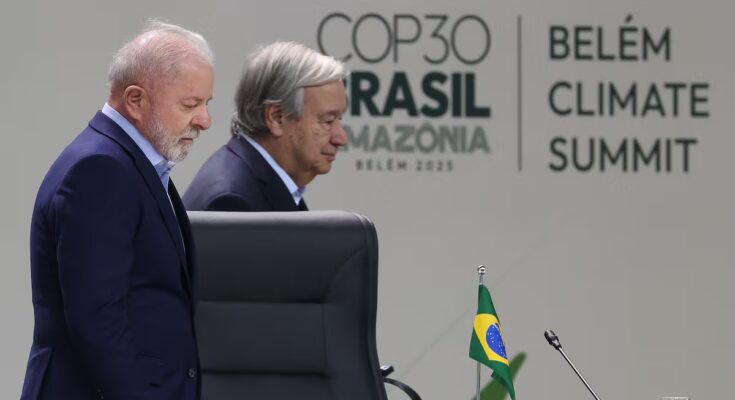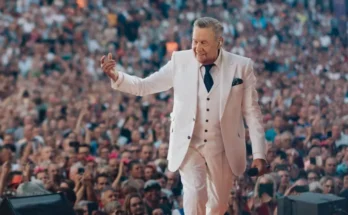The Amazon, more than six million square kilometers of tropical forest essential for regulating planetary temperatures, has been the epicenter of political debate and technical negotiations on how to tackle the climate emergency since Thursday. The host, President Luiz Inácio Lula da Silva, opened the leaders’ summit in Belém, in the Amazon, before the UN climate summit, COP30, that of negotiators. The veteran left-wing president passionately defended the urgency of fighting climate change and deniers “to avoid collapse”. “Extremist forces fabricate lies to defend a model that perpetuates environmental degradation,” he proclaimed in front of 53 heads of state and government who gathered in the Amazon city.
But among them are not the leaders of four of the five countries most responsible for global warming. The United States, which has permanently withdrawn from the fight against global warming, did not even send a representative to Thursday’s meeting, while China, India and Russia participate at a lower level, that is, without presidents or prime ministers. The European Union is the only one of the quintet that presented itself with a solid representation, which includes Friedrich Merz (Germany), Emmanuel Macron (France) and Pedro Sánchez (Spain). They are joined by Keir Starmer (United Kingdom).
The US boycott of the fight against warming marks the beginning of the Amazon summit. Two of the progressive presidents who came to support Lula, Presidents Gabriel Boric, of Chile, and Gustavo Petro, of Colombia, explicitly criticized President Trump and his denialism. “Trump told the UN (in the General Assembly, in September) that climate change does not exist,” the Chilean recalled. “This is a lie,” he added forcefully, underlining the risk that this attitude entails and asking that politicians be guided by science.
Colombia’s Petro said “Mr. Trump is wrong” and issued a warning: “Science predicts collapse if the United States does not move toward decarbonizing its economy. It’s not drill, drill, drill, the president of the United States is 100% wrong.”
Without directly criticizing Trump, British Prime Minister Keir Starmer praised science as a guide in the battle against global warming. He also regretted that the consensus reached ten years ago by the Paris Agreement, signed in December 2015 in the French capital, had been undermined. He recalled that back then the discrepancies were limited to the speed with which it was necessary to act, while now the climate issue sows polarization. But Labor Starmer warned of the serious risks this would pose. “Inaction will lead to more expensive food, greater migration flows and greater threats to national security.” For Starmer, investing in the energy transition will improve the lives of contemporary workers and secure the future of next generations.
Although Lula wanted to bring his Chinese counterpart, Xi Jiping, to Belém, Beijing decided to send number three, the deputy prime minister, Ding Xuexiang. He reiterated that “developed countries must lead the reduction of emissions and finance” the transition. But he also referred to the tariff war waged by the American president against the rest of the world and linked it to the transformation needed to stop global warming. “We must eliminate trade barriers that hinder the green transition,” he said with an obvious reference to Washington. Latin America, in general, and Brazil, in particular, constitute one of the great territories of the commercial and strategic clash fought between the two superpowers.
Ding Xuexiang is also proud of the climate plan he has just presented to the UN and which, for the first time, commits China to concretely reducing greenhouse gases.



